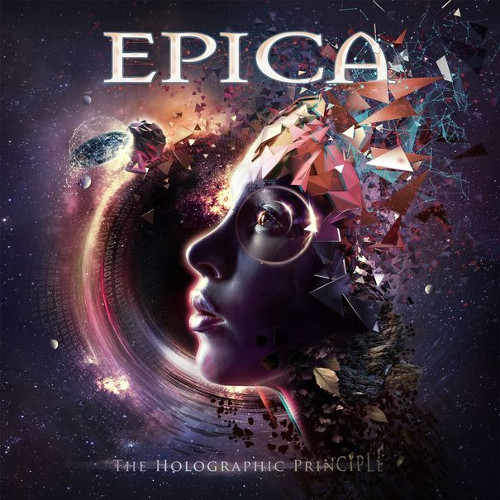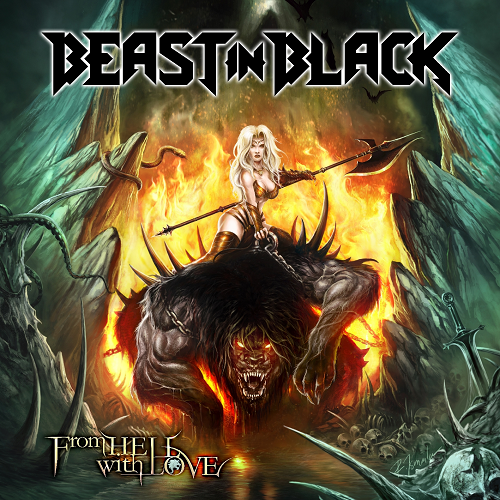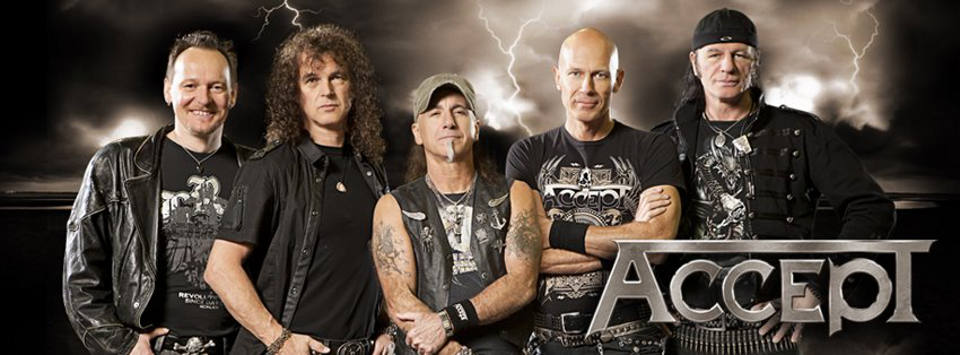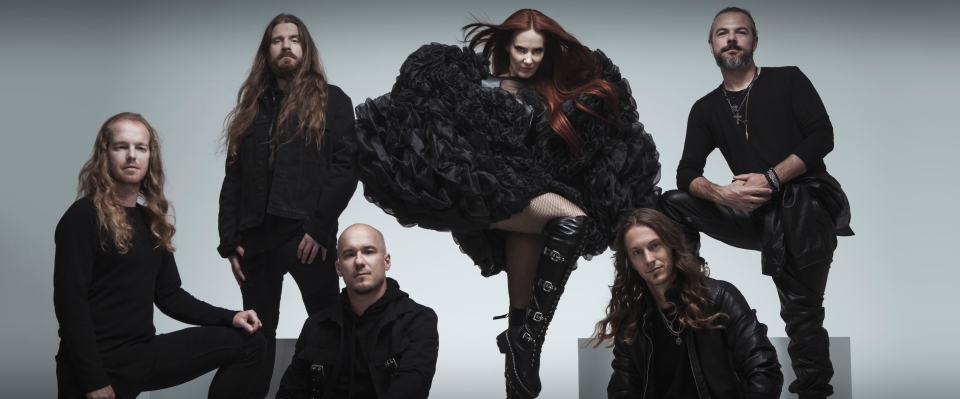
by Alexandra Mrozowska
— Senior Columnist —
So much music is being recorded through long-distance collaborations these days that it’s no longer necessary for all parties involved to gather in one place. And it’s no wonder most musicians and producers are more than willing to embrace this method. Apart from it being hailed as cost-effective and practical, especially in the current uncertain times, it’s also described to be a less stressful experience.
Still, there are some advantages to the traditional way of working on music too. There’s nothing that solidifies bonds within the band than going through each step of creative process together, and it’s something Mark Jansen – a founder of Epica – readily confirms. “I have a feeling that because of this we grew even tighter together as a band,” says Mark, and that’s exactly why the Dutch group’s newest effort Omega was created largely in the traditional way. Checking in with Hardrock Haven prior to its release, Mark told us a lot about the album itself, too – as well as other issues, including his longtime collaboration with the producer Joost van der Broek. He also revealed how a degree in psychology helps him in being a band leader and how he envisions live gigs in the future…
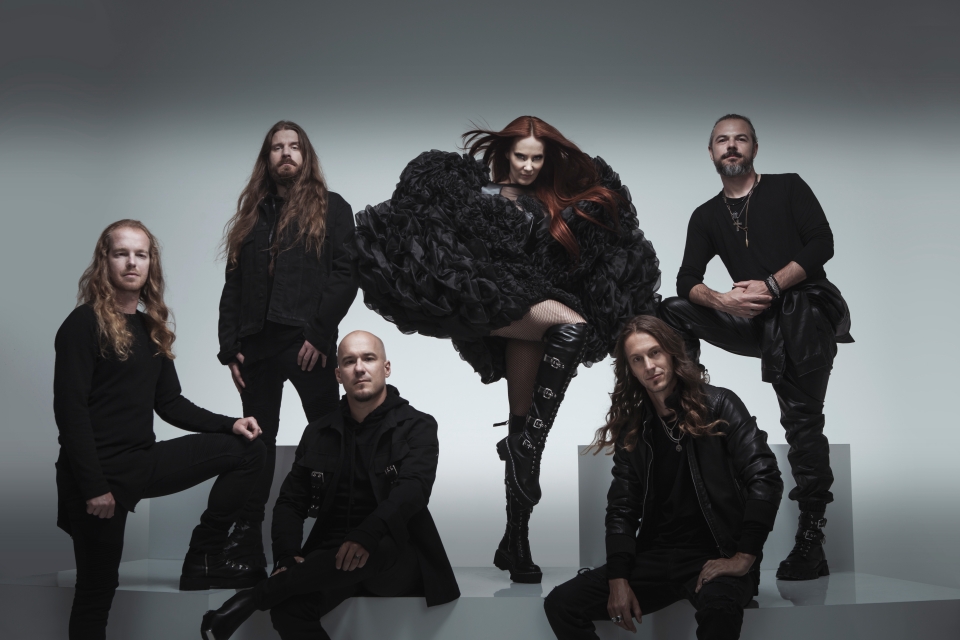
Hardrock Haven: It’s been five years since the previous full-length Epica album saw the light of day. Why did it take you so long to deliver a follow-up to 2016’s The Holographic Principle?
Mark Jansen: It took a little bit longer than usual and I think there’s several reasons for that. One of these reasons is that we released two EPs in the meantime and we worked on a book [The Essence Of Epica, published in 2019]. And also we had a little break, like a sabbatical, so all this together made a gap bigger. But the other reason is that we don’t want to release an album just to release an album. We only want to release one when we feel like we have a great material and are ready to release it. So I wouldn’t be surprised if, from now on, we always take a little bit more time for each new album because we have a big back catalog and we don’t feel the rush to make new albums too fast. Like I said, we’ll only make a new one when we feel we have something to add to our back catalog.
Hardrock Haven: You’ve mentioned the EPs having been released and one of them was The Solace System, which included tracks from the recording sessions for the previous album The Holographic Principle. Do you have any additional material from the recording of the upcoming album Omega that you also plan to release further on?
Mark Jansen: Unfortunately not. We had just the album tracks and we focused on them. Well, there’s actually one track we recorded that is not on the album, so we have one bonus track. But that’s it, because we focused fully on the album tracks and made them as good as we could. Therefore, we have no bonus material this time. But that being said, there’s still some other stuff that we have, waiting to be recorded and then released. So it can happen that we’ll make some other project soon. It’s not really a typical Epica album and there’s not much I can say about it yet, but it’s something interesting with some extra material that we have.
Hardrock Haven: We definitely look forward to it. And back to Omega, what kind of impact did the ongoing pandemic have on the process of making the new album?
Mark Jansen: Fortunately, we were in the studio before the pandemic hit and then, when at the certain point the pandemic became more present, we were almost done with recordings. Just Simone [Simons]’s vocals and mine still had to be recorded. So everything went smoothly until the last vocal recordings, then I recorded my vocals at home – in my home studio – and Simone recorded her vocals in the studio close to where she lives in Stuttgart, Germany. And working like this, we could finish the recordings without problems. But it was basically a matter of finding the right microphone for her to record as she was recording in a different studio where she’s never recorded before. So it was a little bit of going back and forth with our producer to find the right sound, but once they found it, things went pretty smoothly.
Hardrock Haven: What was the songwriting process for Omega like and was it any different than before?
Mark Jansen: Yeah, that was also a bit different. Usually we work like this – everybody writes their own songs as we have five songwriters in the band. For the new album, we started like this as well, but the difference was that at the earliest stage we came together and were working on each other’s tracks. So we went to that place in the Netherlands where we sat together and worked from the morning ‘till the evening and we were literally working on each other’s songs in little groups, with a different home studio set-up. These five days made a huge difference. We’ve never done that like this before, but it really lifted the songs up to a higher level.
Hardrock Haven: And what kind of influence did this method of working have on the relations and dynamics within the band?
Mark Jansen: I have a feeling that because of this we grew even tighter together as a band. You never know how these things develop when you’re working with each other so closely and sitting with each other from the morning ‘till the evening. But surprisingly, it was a very refreshing experience which brought us even tighter. We’re definitely gonna do it again like this in the future.
Hardrock Haven: While recording Omega, you’ve given your fans insight into what was going on in the studio via studio vlogs. Did you enjoy the experience of making these vlogs and providing these studio updates directly to your audience?
Mark Jansen: Yeah. I think basically it’s especially nice for the fans to see what’s going on and for ourselves, like in ten or twenty years, it will be nice as well to watch them again and get all these memories of this time back. So it works both ways – it’s a nice document for the fans, but also for ourselves. I’m happy that we recorded everything to have these memories preserved in the future.
Hardrock Haven: If you could have witnessed the process behind making one album from the history of music, which would it be and why?
Mark Jansen: Oh, that’s a good question! Let’s see… I would like to see the recording of The Final Experiment by Ayreon – there’s many singers involved and that was the first album that Ayreon recorded and released [in 1995], so I think it would be a very interesting thing to watch… to be there as a spectator from the beginning ‘till the end.
Hardrock Haven: That would definitely be something. For Omega, you renewed your longtime collaboration with a producer Joost van den Broek. What does he add to Epica that you continue to collaborate with him one album after another?
Mark Jansen: First of all, Joost is a very nice guy. He’s a very friendly guy, but also very scheduled, so when you do make a schedule with him you can always be sure that as a band you’re gonna make it – he’s very strict about that. He’s also passionate, so he really tries to get the best out of the band. Basically, I have only good things to say about him. He has everything what a producer needs to have in one person. He’s a very good musician as well, so he’s got very good ideas… He’s also a personal friend of mine and I was also at his wedding. I can’t even imagine trying to find another guy like him or working with another producer anymore as I really love working with him.
Hardrock Haven: In the past, Joost played in the band After Forever you’ve also played in, although, I believe, not at the same time. Do you think it has some influence on the chemistry between him, you and the rest of the band?
Mark Jansen: I think so, because when he joined After Forever, he brought the melody back into the band. ‘Cause when Jack Driessen, the band’s former keyboard player, left, there was another keyboard player in between who wasn’t composing too much, and then when Joost joined After Forever, he lifted it to the next level. And I always kept that in mind that he kind of saved After Forever. So whenever I have the chance to start working with him, I talk to the other guys in Epica and they always agree we should work with Joost [again]. But I think indeed that we get to share this history of being in After Forever and this is what created this first bond between us. I’ve always had a lot of respect for him and he also respects everyone in Epica, so there’s a mutual respect and a very pleasant base of working together.
Hardrock Haven: So with Joost’s musical background in mind, but also in general, how much difference does it make when a producer is also a musician themselves?
Mark Jansen: I’ve only worked with producers who are also musicians, so I’ve never had the experience of working with a producer who wasn’t a musician themselves. So I can’t really judge what kind of experience is this. But I think when a producer is a musician, they really understand what a musician goes through in the recording process, so I think every producer who’s also a musician benefits from that experience and brings that to the table. I guess it’s an extra handy element. Just like not every coach in a football/soccer team has to necessarily have an experience of playing at a high level themselves, but most of them have done that anyway. So that’s an extra element that usually is very beneficial.
Hardrock Haven: Absolutely. Lyrics have always been a very important part of all Epica albums. What’s inspired Omega in terms of lyrics?
Mark Jansen: The title comes from the Omega Point theory by a French priest [Pierre Teilhard de Chardin, 1881–1955] who stated that the whole universe, mankind included, is fated to spiral towards one point of unification. I thought it was a beautiful concept and when I stumbled upon it, I decided to read more about it and write lyrics in this direction. All the lyrics are based on the old wisdom teachings, so not only this concept but also other concepts, coming from The Emerald Tablets for example, or Gnostic teachings, or other old wisdom teachings like the Seal of Solomon. That’s where most of the tracks find their base in.
Hardrock Haven: Do you find it easy or challenging to come up with an album title or theme as something that should in a way tie all songs together?
Mark Jansen: It’s always a challenge, but it’s always a very nice challenge that is the same as writing a song which comes together at a certain point. A title comes together at a certain point as well – we discuss it as a band and at a certain point all of us have a good feeling about this title, and then we go for it.
Hardrock Haven: Do you think the fact of your having a master’s degree in Psychology has any influence over your musical career, songwriting in particular?
Mark Jansen: First of all, I think that it has a good influence on the band itself. As a psychologist, I know what it takes to keep a band together. Also my experience from the past, of course, helps with that. But I think as a psychologist I bring that extra knowledge to the table – of how to make everybody happy and feel important and valuable in the band. I think that’s crucial. Also, sometimes some psychological topics make it to the lyrics, but music-wise, I think it’s merely my history of what I was listening to as a kid that brought me to the music that I make, not necessarily my degree in Psychology.
Hardrock Haven: So focusing on the music, do you think each Epica album is a continuation of the previous one, or rather than that, an evolution?
Mark Jansen: Both – it shows an evolution, but every album definitely is based also on the previous one, so every time we think in terms of what we like about this album, but also what we try to change with the next album. So every album indeed is a follow-up to the previous one, but also a kind of evolution, and I think that Omega is a perfect balance of everything we’ve done in the past.
Hardrock Haven: Although Epica is frequently classified as Symphonic Metal, your music has always incorporated a lot of different influences. Is it because of what each member brings to the table musically, or for some other reasons?
Mark Jansen: Yeah, it’s started as a personal fascination since my After Forever days. I always liked the idea of combining many styles and [After Forever’s lead guitarist until 2009] Sander Gommans, my bandmate there, had the same feeling that it would be really cool to combine different styles. And as soon as I’ve started with Epica, that philosophy of combining many styles stayed. So, I searched for musicians who were sharing that passion of trying to combine different influences with me. The musicians that are in Epica today have very different backgrounds indeed. Like we have Ariën van Weesenbeek [drums] with a very much of a Death Metal background. Isaac Delahaye [lead guitar] has also played in a Death Metal band, but also is a very broad-minded musician with many different influences. Rob van der Loo [bass guitar], on the other hand, listens to a lot of bands from the ‘70s and Doom Metal, Simone has a very wide taste too, and Coen [Janssen, keyboards] has a lot of Classical influences… So indeed all these things together make Epica [what it is] and everybody’s influences bring a lot to the table.
Hardrock Haven: And what’s the status of your other projects, namely MaYaN and United Metal Minds?
Mark Jansen: At this point, MaYaN is a bit silent – there’s nothing going on – because we live very far from each other and we can’t travel at the moment. So if it takes too long, maybe we’ll start writing new music via the Internet as the second best solution, ‘cause usually we like to jam and sit together in one room, creating and playing new music. [As for] United Metal Minds, at this point we’re still working on new music. It’s a very slow process and at a certain point we’d have to start recording. But with the pandemic it’s not really sure when it’s actually possible for everybody to travel to the studio. We want to be sure first that things are back to how it was before – at least a little. We can’t book a studio until it happens, ‘cause otherwise rules may change fast and then everybody has to cancel the flights and lose a lot of money. So, we need to be sure that we book the studio only when everybody is able to reach the studio.
Hardrock Haven: Definitely. You’ve described how Omega was created by all band members gathered in one place and also, you say the same goes for MaYaN. Yet, these days it’s very popular to collaborate on music remotely. Why do you think it doesn’t work in terms of your bands and projects?
Mark Jansen: I think it’s a matter of a human touch. Of course you can take advantage of the long-distance [recording] and the Internet is also a great tool for Epica, MaYaN and United Metal Minds, but the human touch is something that I would miss. Being together and creating music is something so magical that you can’t do it just using the Internet. So I see it as the best of both worlds – we make use of the Internet like every other band does and I must say I love it, but we also try to keep the old way of bringing everybody together and doing it together. It also creates a kind of feeling that you’re doing it together and a special bond which you can hear in the music as well. It’s literally the best of both worlds – not just one or the other. We use both these tools.
Hardrock Haven: This sense of togetherness is also a part of live concerts, so with that in mind, what do you think of livestream concerts that had to be utilized throughout 2020 and will be probably utilized this year as well?
Mark Jansen: Usually I’m not a big fan of livestreams, but it’s the second best thing and as long as we cannot play real shows, sooner or later we’ll also have to start working on a livestream concert. There’s a simple reason for that – better that than nothing. That being said, with technology developing so fast, I think in the future we’ll have this kind of virtual reality tools that if you use them, you’ll feel like you were at a live show which feels as real as actually being at an old-fashioned live show. Maybe that’s gonna be the future of live shows anyway, because – like I said – the technology is developing so fast that at a certain point you won’t be able to distinguish between the live show and the virtual reality live show. Then it wouldn’t be necessary anymore to travel long distances in order to attend a live show, because it would simply feel the same.
Hardrock Haven: That’s very probable indeed… And as we speak about the future, what does it hold in store for Epica after Omega sees the light of day?
Mark Jansen: We try not to make too many plans yet, because the situation is changing every day. So we’ll take it day by day and as soon as things finally start looking brighter, we’ll start making more precise plans. At this point, if you make too many plans, I think the situation is going to change anyway and you won’t realize your plans the way you had them in your mind. But a livestream we’ve mentioned is something we’ll plan sooner or later, as soon as we’re able to travel to a safe location to record it, of course. But that’s obviously a tricky thing too, because we live in different countries in Europe and it’s not sure if in the near future we’re able to travel for that [purpose]. Now there’s a lot of different mutations [of the coronavirus] showing up, so it’s really a tricky thing to make too many plans. But we focus on the positive things and we focus on the things we can control. With all the other things, we have to sit and wait until it’s going to start to get better again.
Hardrock Haven: Absolutely, fingers crossed for that! Any last words?
Mark Jansen: To everybody, I’d like to say “Stay healthy!”, ‘cause health is the most important thing in life… health, family and friends. Hopefully everybody gets through this in a good way. And I’d like to thank everybody for their patience. Sooner or later, we will be back!
Photo credits: Tim Tronckoe
Visit Epica online

